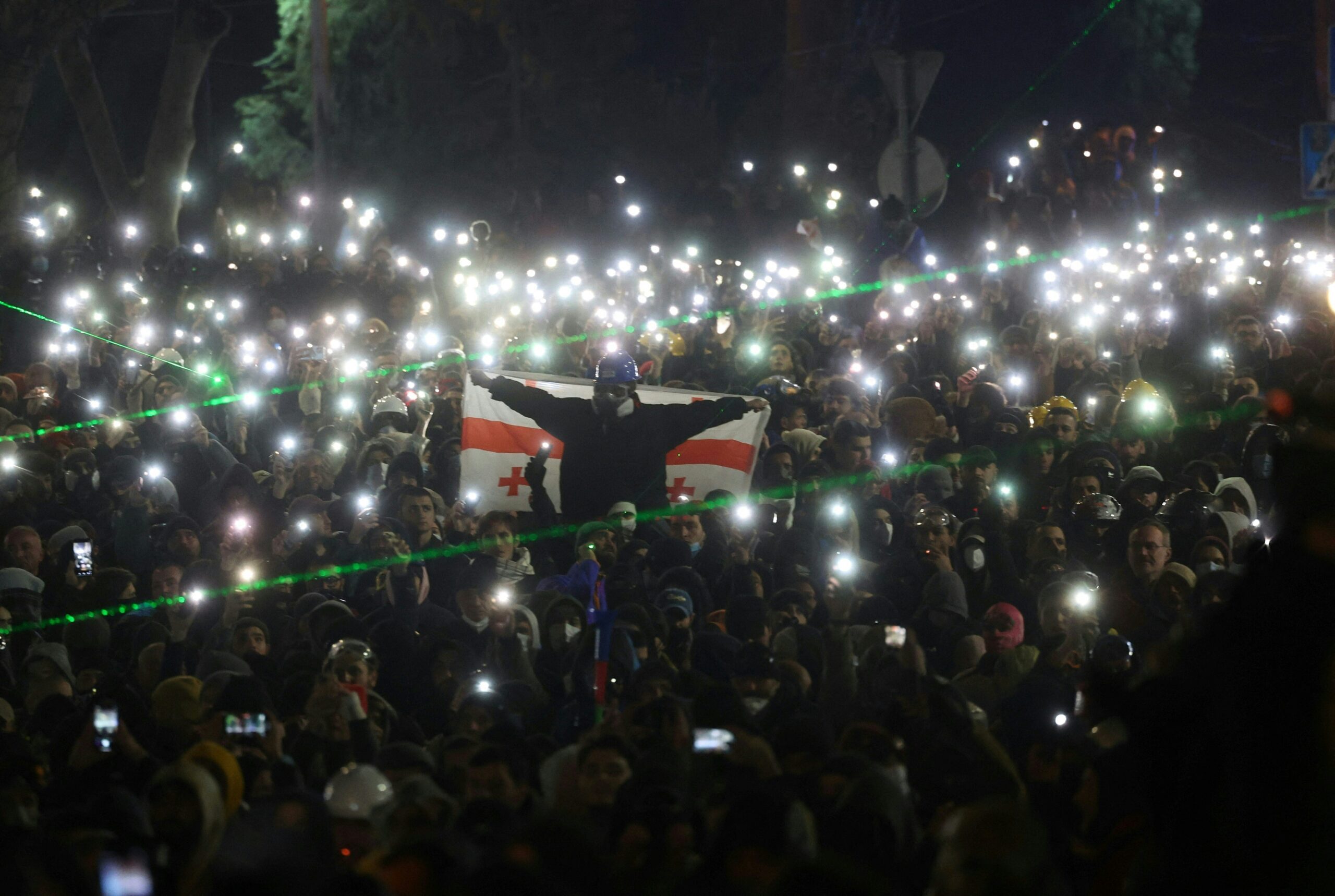Georgians have returned to the streets to fight for their country’s future. They refuse to let it slip quietly into the autocracy the ruling party seeks, writes Ghia Nodia is professor of political science at Ilia State University and director of the Caucasus Institute for Peace, Democracy, and Development in Tbilisi, Georgia.
…
For the last thirty years, Georgians have failed to create working democratic institutions based on checks and balances or a system of stable political parties. But the country does have a strong culture of public protest. Since 2012, when GD first came to power, there have been many protests; on some occasions, the party was forced to make concessions. The last time was in the spring of 2023, when the government withdrew the first version of the Russian law after huge and lengthy protests.
What’s happening now is different. The stakes are higher than ever: Effectively, the protesters are trying to unseat the government — this is what the demand to rerun the elections implies, and everybody understands that. The government has little room for maneuver. It either wins or goes. Its only tool is repression, which includes mass arrests, severe beatings of randomly chosen protesters, and excessive use of tear gas.
…
If the opposition succeeds in pressing for new elections, the current government could be forced to appoint a transitional technical government that is acceptable to the public, which would prepare for the new vote, preferably with some international oversight. But there are no signs yet that GD is ready for such a concession, as it would likely lead to the end of the party’s reign.
The nature of [the ruling ruling party] Georgian Dream’s rule is that everything depends on the will of one very secretive and paranoid man, [party leader Bidzina] Ivanishvili, and the instruments of repression at his disposal. As for the protesters, they have the will of hundreds of thousands of Georgians. Whichever side prevails, it will be a momentous change for the country.


